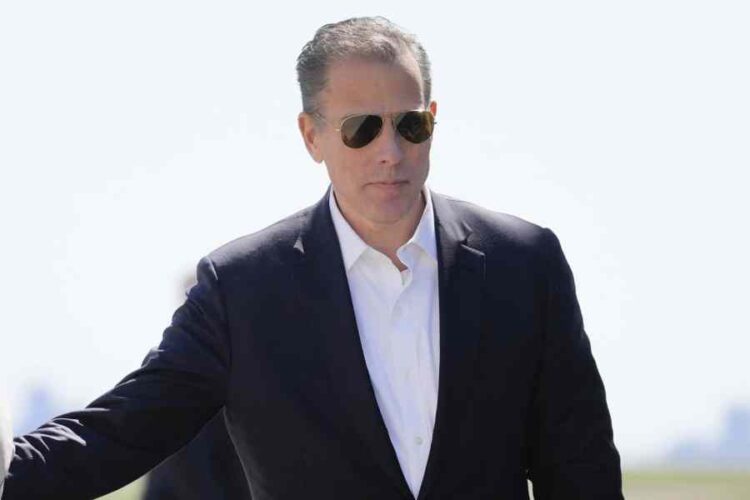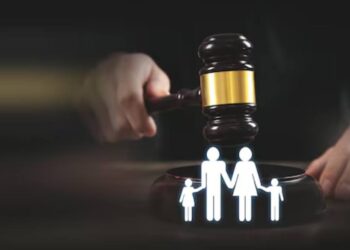Hunter Biden, son of President Joe Biden, faces a rescheduled trial date for his tax-related charges. Initially set to commence on June 20, the trial has now been postponed to September 5 following a federal judge’s approval of Biden’s request for a delay. U.S. District Judge Mark C. Scarsi granted this extension during a hearing on Wednesday, citing the necessity for adequate preparation time for Biden’s defense team, who are simultaneously handling a separate case involving gun charges in Delaware.
Legal Juggling: Gun Charges and Tax Evasion
Biden’s attorney, Abbe Lowell, argued that the team would not have sufficient time to prepare for the tax trial due to the impending gun charge trial set for June 3. The gun charges involve allegations that Biden illegally possessed a firearm while using narcotics, a severe offense that adds to the already complex legal landscape surrounding the president’s son.
Despite multiple attempts by Biden’s legal team to delay the gun charge trial, a federal appeals court has consistently denied these requests, further complicating their ability to manage both cases simultaneously.
Lowell stressed that the overlap of the two high-stakes trials creates an untenable situation for thorough preparation. The defense team must navigate extensive discovery processes, which involve gathering and reviewing vast amounts of evidence pertinent to both the tax evasion and gun charges. This process is time-consuming and requires meticulous attention to detail to consider all relevant information.
The acquisition of expert witnesses has proven challenging. Lowell pointed out that many experts are hesitant to involve themselves in such a high-profile case, which could expose them to significant public and media scrutiny. The few experts who have agreed to participate are often engaged in other legal matters, requiring additional time to prepare their testimonies and analyses.
Given these constraints, Lowell argued that the defense team needs more time to build a comprehensive and robust case for the tax trial. This includes preparing Biden for potential testimony, a critical component of the defense strategy. The complexity of managing dual trials, each with its own unique challenges and demands, underscores the need to postpone the tax trial to ensure a fair and just legal process.
Prosecutorial Pushback
Prosecutor Leo Wise from Special Counsel David Weiss’ office firmly opposed the request for delay, underscoring the logistical preparations already in place for the June trial. Wise emphasized that his team had subpoenaed 30 witnesses, each adjusting their schedules to accommodate the original trial date.
He argued that these arrangements were significant and should not be disrupted lightly, pointing out that rescheduling would inconvenience many individuals involved in the case.
Wise also addressed the defense’s claims of struggling to find expert witnesses, dismissing these concerns as unfounded. He argued that experts are readily available for hire in the legal arena and suggested that the defense’s difficulties were exaggerated. “You can hire an expert to say anything. They’re everywhere at any price,” Wise stated, implying that the defense had ample opportunity to secure necessary expertise but had not efficiently used their resources.
Maintaining that the charges against Hunter Biden were not unduly complex, Wise downplayed the media’s portrayal of the case’s intricacies. “There’s a lot of noise around this case, but that doesn’t make it complex or challenging,” he remarked, suggesting that the heightened public interest did not correlate with the legal difficulty of the charges. Wise predicted that the tax trial would span approximately six days, a relatively brief period that further underscored his argument against postponement. He argued that the nature of the charges—primarily tax evasion and failure to file—were standard legal issues that did not warrant extensive delays.
Wise conveyed a sense of urgency and efficiency in his statements, advocating for the judicial process to proceed as scheduled. His stance highlighted the prosecution’s readiness and commitment to adhering to the original timeline, aiming to bring the case to a swift and decisive conclusion.
Judge’s Reluctant Decision
Judge Scarsi appeared initially hesitant to grant the delay, noting that the trial date had been set prior to the scheduling of the Delaware gun trial. However, after an extensive back-and-forth, he agreed to the postponement. Lowell underscored the importance of having ample time to prepare not only for trial but also for potential testimony by Biden himself.
In addition, Lowell pointed out that the defense team had encountered significant challenges in securing experts due to the case’s high-profile nature. One tax expert, already confirmed, was engaged in another trial and required additional time to prepare. Lowell also cited personal scheduling conflicts, including a family vacation and an unrelated oral argument in the 5th Circuit, as reasons for requesting the September date.
Legal and Personal Stakes
Hunter Biden’s legal battles are unfolding against intense public and media scrutiny. The charges include allegations of tax evasion, failure to pay taxes, and filing fraudulent forms, reflecting years of alleged financial misconduct. Additionally, the gun charges pertain to his purchase and possession of a firearm while allegedly using illegal drugs, adding another layer of complexity to his legal woes.
Throughout the proceedings, Biden has maintained his innocence, pleading not guilty to all charges. His absence from Wednesday’s hearing, having waived his appearance, underscored his defense team’s logistical and strategic considerations as they navigate multiple legal fronts.
Abbe Lowell defended the request for delay, countering the prosecution’s assertions that the defense was using delaying tactics. “I reject that zealously representing a client is a delaying tactic,” he stated. Lowell argued that the sheer volume of exhibits and the intricate details involved in the tax case required a thorough preparation period, which was infeasible under the original timeline.
Judge Scarsi, despite his initial reservations, ultimately sided with the defense’s need for adequate preparation time. He acknowledged the challenges faced by Biden’s legal team and the importance of ensuring a fair trial. “The needs of a defendant outweigh the prejudice in moving it,” Scarsi concluded, firmly setting the new trial date for September 5 and stipulating that no further delays would be entertained.
The postponement of the trial to September has significant implications. For the defense, it provides crucial additional time to gather evidence, prepare expert witnesses, and strategize for both the tax and gun charge cases. For the prosecution, it means re-coordinating with witnesses and adjusting the timeline of their case presentation.
Leo Wise expressed concerns about the potential repercussions of the delay, emphasizing the importance of maintaining the original schedule. Nevertheless, he reaffirmed his team’s readiness to proceed and adapt to the new timeline, ensuring the integrity of the trial.
Hunter Biden’s legal troubles have become a focal point of political discourse, with opponents of President Joe Biden leveraging the charges to critique his administration. The high-profile nature of the cases has amplified public interest and scrutiny, with each development closely monitored and analyzed.
The trial’s postponement also highlights the procedural intricacies and strategic maneuvers inherent in high-stakes legal battles. The intersection of personal, legal, and political dimensions in Hunter Biden’s situation underscores the complexity of his defense strategy and the broader implications for the Biden family.
As the new trial date approaches, both legal teams will work intensively to prepare their cases. For Hunter Biden and his defense team, the additional time offers a vital opportunity to build a robust defense, addressing the tax-related charges and the separate gun charge trial.
Judge Scarsi’s firm ruling on the September 5 start date marks a critical juncture in the legal proceedings, setting the stage for a high-profile trial that will continue to captivate public and media attention. The outcomes of these cases will undoubtedly have far-reaching implications, not only for Hunter Biden but also for the broader political landscape.
The delay in Hunter Biden’s tax trial underscores the intricate legal dynamics at play and sets the stage for a significant legal confrontation in September. Both the defense and prosecution will be gearing up for what promises to be a closely watched and pivotal trial.










